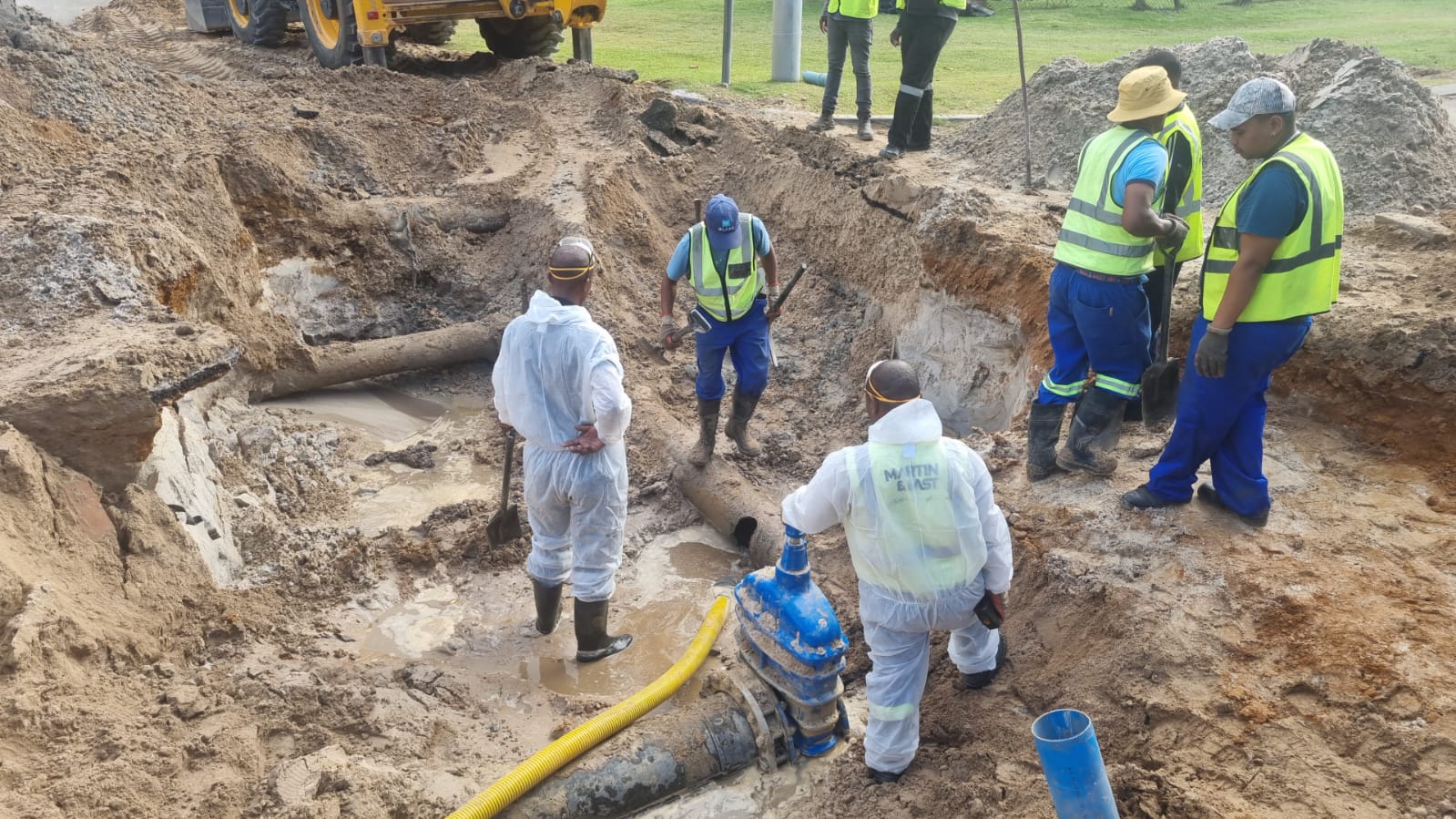Like in many municipalities in South Africa (in fact, the world over), asbestos-cement (AC) pipes remain part of older water infrastructure in the Overstrand.
While both international and local research (including assessments by the World Health Organisation) have consistently found no significant health risk from asbestos fibres in drinking water, Overstrand Municipality continues to prioritise the systematic replacement of these legacy pipes with modern, high-density polyethylene alternatives.
OVERSTRAND’S PIPE-REPLACEMENT PROGRAMME
- Overstrand Municipality allocates significant resources annually to modernise its water infrastructure.
- On average, R10 million per year is spent on pipe replacement, with a strong focus on replacing AC pipes.
- For the 2025/26 financial year, this budget has increased to R13,5 million.
- Concurrently, the municipality is actively exploring alternative funding sources to accelerate the pipe-replacement programme.
- The long-term goal is to completely phase out AC infrastructure, subject to funding and project prioritisation.
SAFE HANDLING AND DISPOSAL OF ASBESTOS
The municipality regularly conducts up-skilling and training programmes to ensure staff are equipped to handle hazardous materials safely. Most recently, early in May this year, 23 municipal staff members across the Overstrand underwent certified asbestos-awareness training in collaboration with the National Department of Employment and Labour.
As part of this safety-first approach, our plumbing teams do their utmost to replace the entire length of any asbestos-cement pipe in the event of a break, rather than cutting into it. This is a precautionary measure to prevent the release of asbestos fibres or particles into the air.
When asbestos-cement pipes are replaced, appointed contractors are also required to follow strict safety protocols, in line with national health and safety regulations.
These same requirements apply to other asbestos-containing materials commonlyfound in the building environment, such as roofing, gutters and other structural components. All such work must comply with the Asbestos Abatement Regulations, 2020 (GG43893) and the Occupational Health and Safety Act:
- Only contractors registered with the Department of Labour may perform Type 2 or Type 3 asbestos-related work.
- This applies to both underground infrastructure and asbestos in buildings, such as roof sheets, ceiling panels, fascia boards or cladding.
- A registered asbestos contractor must be appointed for any asbestos-related removal, repair or disposal work.
- An application for a demolition permit must be submitted to the relevant Building Control office. This application must include the details of the registered asbestos contractor who intends to complete the demolition work.
Overstrand Municipality remains committed to ensuring the safety of its residents and workers, the reliability of its infrastructure and compliance with all relevant national regulations regarding asbestos materials.


